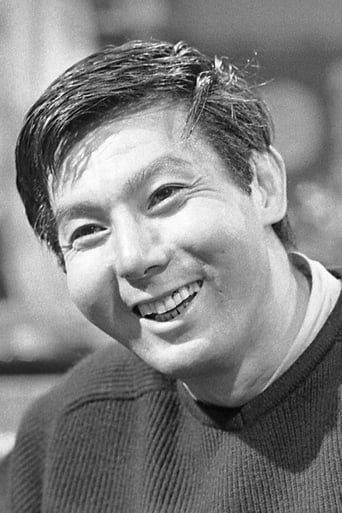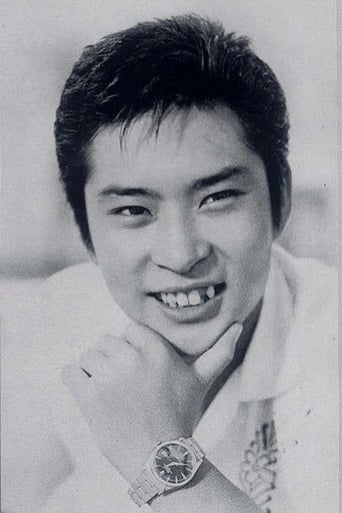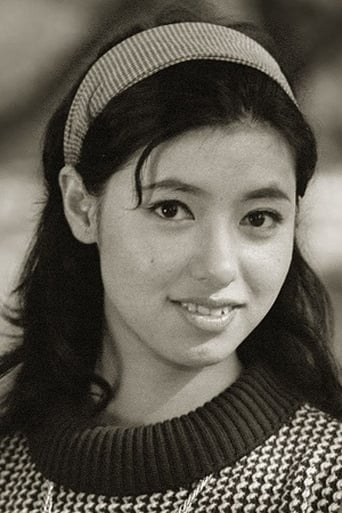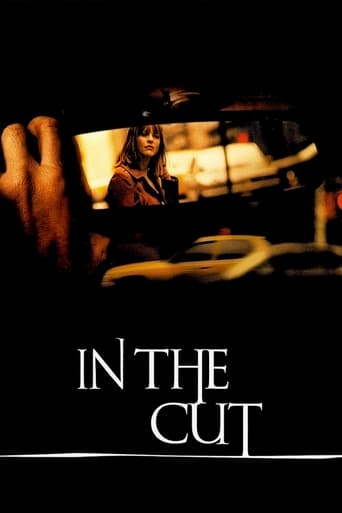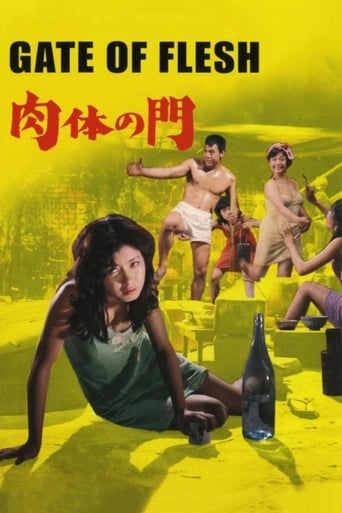
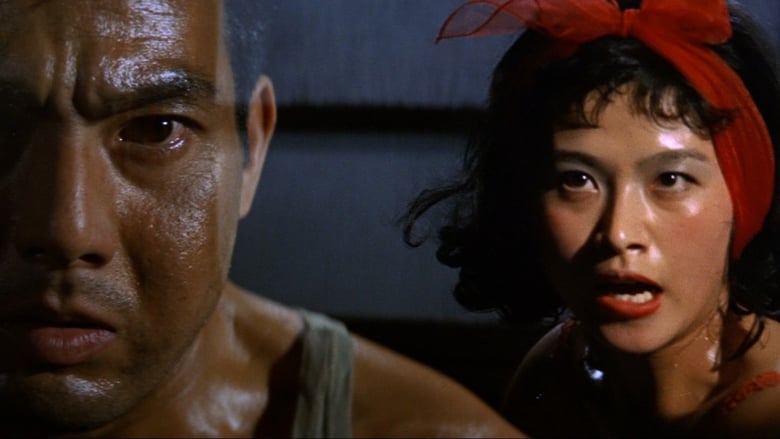
Gate of Flesh (1964)
In the shady black markets and bombed-out hovels of post–World War II Tokyo, a tough band of prostitutes eke out a dog-eat-dog existence, maintaining tenuous friendships and a semblance of order in a world of chaos. But when a renegade ex-soldier stumbles into their midst, lusts and loyalties clash, with tragic results. With Gate of Flesh, visionary director Seijun Suzuki delivers a whirlwind of social critique and pulp drama, shot through with brilliant colors and raw emotions.
Watch Trailer
Cast


Similar titles
Reviews
I think this is a new genre that they're all sort of working their way through it and haven't got all the kinks worked out yet but it's a genre that works for me.
Although it has its amusing moments, in eneral the plot does not convince.
A lot of perfectly good film show their cards early, establish a unique premise and let the audience explore a topic at a leisurely pace, without much in terms of surprise. this film is not one of those films.
The joyful confection is coated in a sparkly gloss, bright enough to gleam from the darkest, most cynical corners.
This film proves that good directors are able to make first-rate films in spite of very modest budgets if they have the desire and creativity necessary to succeed. Essentially, this movie concerns the plight of a small number of prostitutes who are trying to survive in post-World War II Tokyo during the American occupation. With food, medicine, shelter and employment in scarce supply those without any resources became like animals just trying to stay alive. So 5 or 6 young prostitutes take refuge in a bombed out basement and agree to live by a very strict code which forbids, among other things, sex without payment. Those who fail to comply are tortured and then thrown back onto the cold streets without any means of protection or support. At any rate, things are going well for this small group until a war-weary Japanese soldier arrives suffering from a gunshot wound. Now, rather than giving away the entire plot I will just say that the director, Seijun Suzuki, uses various techniques (like different colors to differentiate the women) to create something quite impressive out of almost nothing. Just be advised that there is some nudity and violence that wasn't usual for this period in time. But even here he uses symbolism in many cases so that it doesn't seem crass or vulgar. In short, this is a picture that I recommend to those who can appreciate artistry and ingenuity and don't depend on special effects and CGI for their film entertainment. But it's not for the squeamish.
An exploitation film with a brain. We see nude women tastefully lit, kinky violence - women beating other women and the low life of Tokyo outdoing each other in even more dastardly acts of treachery and heartless thuggery. The intelligence comes with the strong impact of the women dressing in vibrant red, purple, yellow and green to reflect their characters. Having the prostitutes live in a building that is an analogy for post-war Japan is even smarter. The building is bombed out, its occupants desperate, many have lost family in the war and for some the sight of people burned to death has made them individually heartless, desperate and mad. The fact that most of them live in the basement indicates that they have plummeted into the depths of hell. For cinema goers in Japan in 1964, just enjoying the fruits of the boom years for their rebuilt economy and also a new found pride and respectability, this must have been a sobering but also satisfying reminder of where they had been and how far they had come.
Having discovered the Female Prisoner Scorpion series recently, I've been looking out for more Japanese exploitation films and Gates of Flesh is an early example. The film is a bit artier than the other examples I've seen, and despite focuses on a nest of prostitutes; there isn't a lot of sex/nudity in it either. However, director Seijun Suzuki gets round this by giving the film a tremendously dark and unpleasant atmosphere that bodes well with the plot line as well as the time in which the film is set. The film is set shortly after World War II and we focus on a group of prostitutes who have come together to work for themselves. As a result, they have no pimp to answer to and so have to protect themselves also. They get a strict set of rules in place, which are enforced again by the girls themselves and the main rule states that none of them may give out what they sell for free. The group gets a new member in the form of a girl named Maya and shortly afterwards a thief seeks sanctuary with the prostitutes, and causes disruption within the group.The plot is very ambiguous and it's never made clear exactly what the 'point' of any of the characters is, which on the one hand makes the film interesting as it means we have to work things out for ourselves; but on the other, the characters lack humanity and so the film can be a bit dry as a result. The director is apparently quite respected for making films like this; Gate of Flesh is the first one of his that I've seen so I cant comment on the body of his work, but clearly he is a director that values of the importance of making his films interesting and Gate of Flesh also looks very nice and the director gets the best out of his performers. I think that the director was hoping more to get a point across than anything else, but he also values style and that comes across well in the film also. The plot does flow fairly well, although at times it seems like there's not a lot happening so the film is not constantly entertaining. Overall, I won't name this film as a favourite of mine and I do prefer the more wild Japanese exploitation flicks; but this certainly isn't a bad film and I can recommend it.
Born on May 24, 1923, Seijun Suzuki was a trade school drop-out and a soldier before studying film at Kamakura academy. After graduating in 1948, he was employed at Ofuna Studio as an assistant director. He began his full-fledged directing career at Nikkatsu in 1954, where he subsequently made 40 films. Most of these were quickie crime thrillers which were akin to Hollywood B-movies. Within the constricting confines of the mercenary studio system, Suzuki was nonetheless able to find his own unique creative sensibility.His earliest films bear a renegade, sensual flair and a vibrant visual style unsurpassed by more recent work in both the West and Asia. Working in Cinemascope, he used the widescreen frame to full effect, composing intricate shots which seem almost three dimensional, due to somewhat elaborate staging and the novel device of using dissolves to show characters and action on the opposite side of the room or space to which the main camera is pointing.GATE OF FLESH (1964) exemplifies this. One of Suzuki's most atypical films, it tells the tale of a pimp-less group of hellcat prostitutes trying to survive in the chaotic, crime-ridden arena of post-war Tokyo. Living by a strict code, any of their number can be severely physically punished for sleeping with a man for free. Puffy-cheeked Suzuki regular Jo Shishido plays Shintaro Ibuki, a macho renegade former soldier who deals on the black market and comes to lord it over the band of women. Captivating each of them, he causes a rift among them in which the young novice hooker Maya suffers the most, as she is totally enamored of him. The film is intensely visceral, outrageous, and risque, even today. It must have been positively explosive in 1964, with its sweating, erotically-driven characters, fairly explicit depictions of sex, and savage scenes in which naked women are tied up and whipped by other women. The aggressive sensuality is further enhanced by the Fujicolor processing, which accentuates the reds and greens.Due to his interpid nonconformism, Suzuki was fired from Nikkatsu in 1968. Amid shake-ups and financial problems at the studio, the suits decided to jettison him for making "incomprehensible" films. This prompted a massive movement on his behalf organized by his fans of time, who were mostly college students. With their support, as well as that of the Director's Guild of Japan, Suzuki filed a court case for wrongful dismissal. He won the case, but the resulting furor got him blacklisted out of the studio system, and Suzuki was only able to resume making feature films in 1977, albeit independently.


